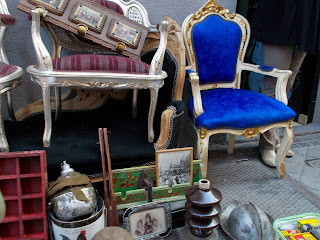Say Cheese!

I have a small camera that I keep in my purse. It's small and inexpensive. I got it when my phone camera started doing strange things and I was reluctant to send it to be fixed. Eventually, I did, but that small camera is still in my purse. Whenever I'm out on errands, or simply on a drive, I will almost always find something I want to remember. I have always loved photography, though I'll never become a professional photographer. When I was eighteen, my parents bought me a Canon SLR with two lenses. I learned to use it and loved how I could almost always capture what I saw or wanted to see. Back then it was film, though, and a roll of 24 or 36 pictures wasn't cheap to develop. I couldn't shoot all the pictures I wanted whenever I wanted. But in over the twenty years I used it, I took many pictures. Then digital came along. At first I resisted. To use film correctly and creatively, you had to have a minimum of knowledge and bracket above and below what you con...